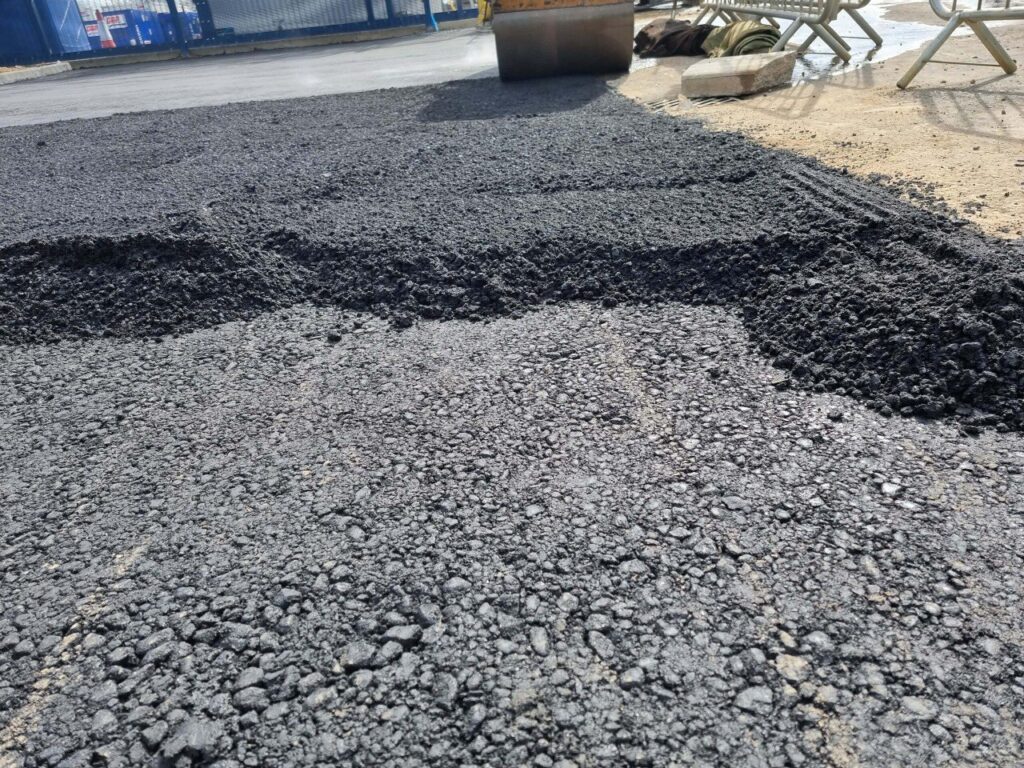Tarmac Recycling: Turning Old Roads into New
Introduction: Tarmac, known as asphalt, is famous for road construction due to its durability and versatility. However, as roads age and wear and tear, they often need repair or replacement. Tarmac recycling has emerged as an innovative and sustainable solution to address the environmental impact of road construction while maximising the use of existing materials. In this blog post, we’ll explore the concept of tarmac recycling and its benefits.
What Is Tarmac Recycling?
Tarmac recycling, referred to asphalt recycling, involves reusing existing tarmac materials from old road surfaces to create new roadways. Instead of disposing of old tarmac, it is collected, processed, and incorporated into new road construction or maintenance projects. This sustainable practice reduces the need for new materials, conserving resources and minimising waste.
The Benefits of Tarmac Recycling
Resource Conservation: Tarmac recycling reduces the demand for new aggregates (stone, sand, and gravel) and bitumen, the binding agent in asphalt production. By reusing existing materials, valuable natural resources are conserved.
Energy Savings: Producing new tarmac materials requires significant energy, whereas recycling tarmac consumes less energy. This results in reduced carbon emissions and a smaller environmental footprint.
Cost-Efficiency: Tarmac recycling can be cost-effective compared to producing entirely new materials. It saves on transportation and disposal costs for old tarmac while reducing the need to purchase new materials.
Reduced Landfill Waste: Recycling old tarmac keeps large quantities of road waste out of landfills, contributing to waste reduction and environmental preservation.
The Tarmac Recycling Process
The tarmac recycling process typically involves the following steps:
Milling: Old road surfaces are milled or removed to collect the existing tarmac material. This material is then transported to recycling facilities.
Crushing and Screening: The collected tarmac is crushed into smaller pieces and screened to remove impurities like debris and vegetation.
Mixing and Modification: The recycled tarmac is mixed with new bitumen and possibly new aggregates to meet the required specifications for the intended project.
Paving: The recycled tarmac mixture is used to pave new road surfaces or repair existing ones.
Quality Control: Quality control measures ensure the recycled tarmac meets safety and performance standards.
Conclusion: Tarmac recycling is a sustainable and eco-friendly practice that extends the lifespan of existing road materials, reduces waste, conserves resources, and minimises the environmental impact of road construction. At Uckfield Driveways, we embrace tarmac recycling as part of our commitment to sustainable road construction and maintenance practices. By harnessing the benefits of tarmac recycling, we help create roadways that are not only durable and safe but also environmentally responsible.
Call us on: 01825 705 496
Click here to find out more about Uckfield Driveways
Click here to complete our contact form and see how we can help with your driveway needs.

